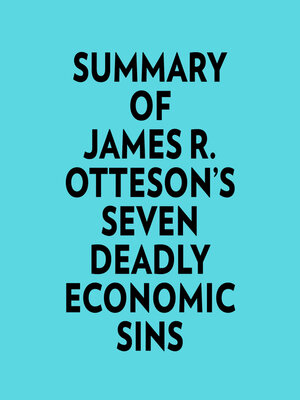
Sign up to save your library
With an OverDrive account, you can save your favorite libraries for at-a-glance information about availability. Find out more about OverDrive accounts.
Find this title in Libby, the library reading app by OverDrive.



Search for a digital library with this title
Title found at these libraries:
| Loading... |
Please note:This audiobook has been generated using AI Voice. This is a companion version & not the original book. Sample Book Insights: #1 While it is true that markets are competitive, and that some firms will succeed and others will fail, this does not have to be a negative thing. Because markets are positive-sum, not zero-sum, the wealth they create is positive-sum as well. #2 There are two main ways to get something from someone: by taking it forcibly from them, or by defrauding them and promising to pay them in the future but not doing so. These are examples of zero-sum exchanges. #3 Until about 1800, the average person's per-capita wealth was extremely low, between $1 and $3 per day. But there is another way to get what you want from another person: make an offer of exchange that the other party is free to accept or decline. If both parties benefit from the exchange, it is a positive-sum exchange. #4 The morally superior way to deal with others is to engage in cooperative exchanges instead of extractive ones. This was a great leap forward in human morality, and it has become clear that the only properly moral way to deal with others is to treat them as equals in dignity and agency.






